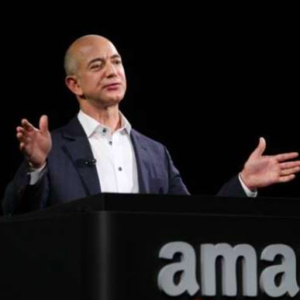Big Tech companies like Amazon, IBM and Netflix paid no federal income tax this year according to data compiled by the Institute on Taxation and Economic Policy (ITEP), and some rushed to blame Republicans’ Tax Cuts and Jobs Act (TCJA) for handing out more tax breaks to corporations instead of ordinary Americans.
Data compiled by Bloomberg shows that other Big Tech companies like Facebook and Google used their tax savings for stock buybacks, and that buybacks skyrocketed after the TCJA went into effect, making their investors the primary beneficiaries of the tax cut.
Big Tech claimed they would use savings from the TCJA to hire more workers, but hiring in the tech industry slowed last year, according to Bloomberg’s data.
But one economist said it’s not quite accurate to blame the TCJA for some companies (like Amazon and Netflix) paying no tax.
Most companies avoid federal income tax through preexisting loopholes, not from the newly-reduced 21 percent tax rate under the new GOP tax law, said Lawrence White, professor of economics at New York University’s Leonard N. Stern School of Business.
On the other hand, he said, Republicans claimed the TCJA would close more loopholes. As this new data confirms, that didn’t happen.
“We shouldn’t be surprised that tax revenues from corporate taxes go down after there is a tax cut,” he told InsideSources. “I think [the GOP law] did open a few more loopholes, but I don’t think that’s what’s going on in this list. I think it’s primarily companies taking advantage of existing loopholes and some of which I would argue are not even loopholes.”
For example, Amazon, Netflix and software company Salesforce took advantage of stock options to nab tax breaks. According to ITEP, “A June 2016 Citizens for Tax Justice report found that 315 companies in the Fortune 500 disclosed receiving benefits from this tax break, which allows companies to write off stock-option related expenses in excess of the cost they reported to shareholders and the public.”
White doesn’t consider writing off stock options to get a tax break a loophole. On the contrary, for some Silicon Valley companies, writing off stock options helps those in the red to stay in business.
Amazon, for example, wasn’t profitable for years, and when it finally did start to turn a profit, it was barely enough to reinvest in the company to keep it growing. Netflix continues to bleed as it shells out millions for “Netflix Original” productions and the rights to popular shows like NBC’s “The Office” and WarnerMedia’s “Friends” (and Netflix recently upped its subscription prices, again).
“There’s a sensible argument for why stock options are considered a cost to the company,” White explained. “Instead of paying their employees with cash, which would clearly be a cost to the company, they pay with stock options. Stock options are a cost to the company’s owners, the shareholders, their claim on the company is smaller because there’s more claim on the company. The idea that stock options are a cost is a battle that was fought 15 years ago when companies wanted to claim that issuing stock options was not a cost, and therefore their profits were higher, and there were those of us who said that’s nuts, they’re diluting the shareholders and making the stock holdings less valuable because now there’s more stock out there instead of paying.”
At the same time, Amazon eliminated monthly bonuses and stock options for employees last year in favor of higher pay, which some employees complained was worse for them, so writing off stock options may not play as big a role in Amazon’s taxes next year.
Of the 60 companies listed by ITEP as paying no federal income tax, most are energy companies taking advantage of fossil fuel tax subsidies, alternative energy tax subsidies, and research and development (R&D) tax credits. That’s the biggest problem White sees with companies not paying federal income tax. For one, the subsidies hamper the free market from running its course.
“The fact that Amazon was able to reduce its income taxes by making use of stock options as a cost, that doesn’t bother me so much,” White said. “The fossil fuel tax subsidies, that bothers me a lot, those are an outrage. The R&D tax credits — that one probably gets abused. There’s an argument for encouraging R&D [with tax credits], whether this is the best way to do it, I don’t know.”
Because Washington is so suspicious of Big Tech, Democratic presidential hopefuls slammed Amazon for not paying taxes. Sen. Bernie Sanders (I-Vt.) said it is a “disgrace” that neither Amazon or Netflix paid any federal income tax.
Andrew Yang, another presidential candidate, said Monday he wants to impose a 10 percent value-added tax (VAT) on Big Tech companies like Amazon and Google.
Sen. Elizabeth Warren (D-Mass.) wrote a blog post last week detailing her plan to close loopholes and establish a flat corporate tax rate of 7 percent, which White said makes more sense than other Democrats’ calls to tax wealthy individuals, like Sen. Ron Wyden’s (D-Ore.) plan to tax unrealized capital gains. Sen. Cory Booker (D-N.J.) wants to overhaul the tax code, which is more optics and showboating than realistic, White said.
“[Warren’s plan] strikes me as a very sensible direction to be going in,” White said. “Get rid of the loopholes, have a a flat tax, that makes lot of sense.”

